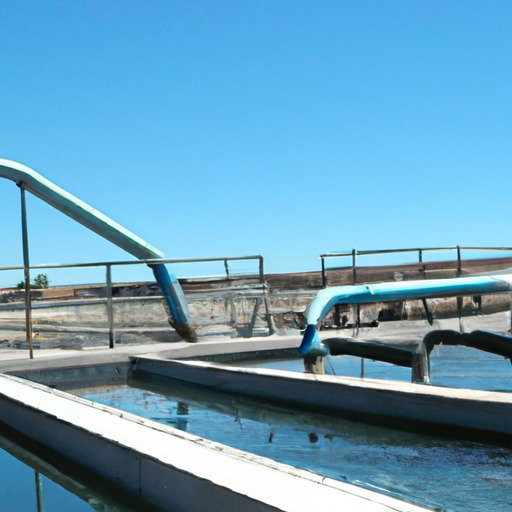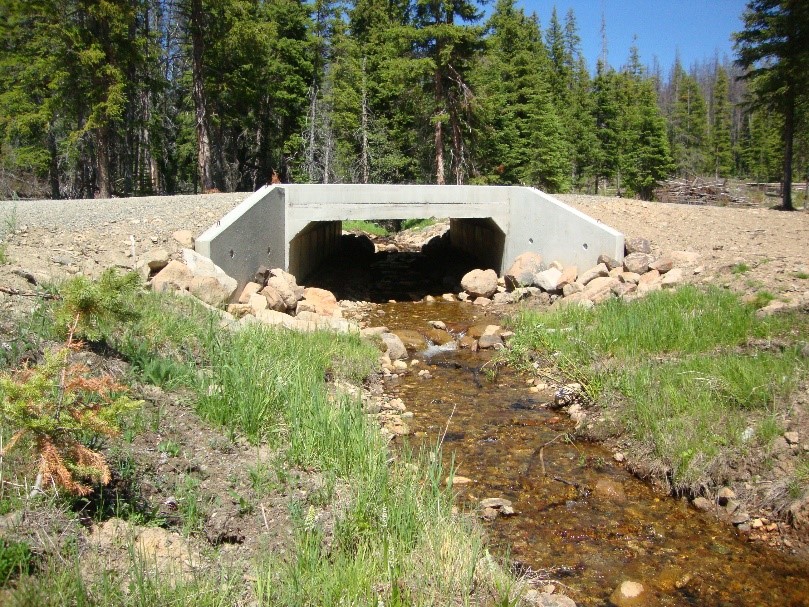Are you interested in the latest advancements in sustainable wastewater treatment technologies? Look no further! In this article, we will explore the cutting-edge solutions being developed to tackle the global challenge of wastewater management. From innovative purification techniques to eco-friendly systems, these advancements are not only reducing pollution and conserving water resources but also offering sustainable alternatives for a cleaner and healthier future. So, if you want to stay informed about the exciting progress being made in this field, keep reading!
Advancements in sustainable wastewater treatment technologies
Ensuring sustainable wastewater treatment is a pressing issue that impacts both the environment and public health. As the population continues to grow and urban areas expand, the need for effective and environmentally friendly wastewater treatment processes becomes increasingly important. Fortunately, advancements in technology have led to innovative solutions that tackle this challenge head-on. From biological treatment to resource recovery, these sustainable wastewater treatment technologies are revolutionizing the way we handle and manage wastewater.
Technological Innovations in Biological Treatment
Biological treatment processes have long been utilized in wastewater treatment plants, but recent advancements have taken this technology to new heights. One of the notable innovations in biological treatment is the implementation of aerobic granular sludge (AGS) systems. These systems utilize granules comprised of microorganisms that are capable of efficiently removing organic matter and nutrients from wastewater. AGS systems offer several advantages over traditional activated sludge systems, including higher treatment capacity, improved effluent quality, and reduced energy consumption.
Enhanced Nutrient Removal Processes
Nutrient pollution from wastewater, particularly excessive amounts of nitrogen and phosphorus, poses a significant threat to aquatic ecosystems. In response to this challenge, enhanced nutrient removal processes have emerged as effective solutions. One such process is the use of anammox (anaerobic ammonium oxidation) bacteria to remove nitrogen from wastewater. These bacteria convert ammonium and nitrite into harmless nitrogen gas, reducing the need for energy-intensive nitrification and denitrification processes. Similarly, innovative approaches involving phosphorus recovery and removal are being developed, further contributing to sustainable wastewater treatment practices.
Energy Recovery from Wastewater
Wastewater treatment is typically an energy-intensive process, but advancements in technology have paved the way for energy recovery from wastewater. One key development in this area is the use of anaerobic digestion, a process that converts organic matter in wastewater into biogas. This biogas can be used to generate electricity or heat, offsetting the energy requirements of the treatment plant. Additionally, innovative technologies such as microbial fuel cells (MFCs) harness the energy produced by microorganisms during the treatment process and convert it into usable electricity.
Decentralized Treatment Systems
Traditional wastewater treatment systems rely on centralized facilities that collect and treat wastewater from multiple sources. However, decentralized treatment systems are gaining recognition as viable alternatives. These systems involve smaller-scale treatment units that can be implemented at the source of wastewater generation, such as individual households or small communities. Decentralized treatment offers several advantages, including reduced infrastructure costs, improved flexibility, and increased resilience to natural disasters. Moreover, these systems can be tailored to meet the specific needs of different locations, promoting sustainable wastewater treatment on a local scale.
Membrane Filtration Systems
Membrane filtration systems have become increasingly prevalent in wastewater treatment due to their high efficiency and versatility. Membrane bioreactors (MBRs) combine biological treatment processes with membrane filtration to produce high-quality effluent. MBRs utilize ultrafiltration or microfiltration membranes to remove suspended solids, bacteria, and pathogens from wastewater. The compact nature of MBRs allows for their implementation in both small-scale and large-scale treatment systems, making them a suitable option for various settings. Additionally, the concentrated sludge produced by MBRs can often be used for energy generation or other resource recovery processes.
Advanced Oxidation Processes
Advanced oxidation processes (AOPs) offer innovative solutions for the degradation of persistent organic compounds and the removal of emerging contaminants from wastewater. These processes involve the generation of highly reactive hydroxyl radicals, which can effectively break down a wide range of substances. AOPs can be utilized as a standalone treatment or as a complementary step in the overall wastewater treatment process. With their ability to target specific contaminants and produce minimal sludge, AOPs are becoming increasingly important in achieving sustainable wastewater treatment goals.
Microbial Fuel Cells
Microbial fuel cells (MFCs) are a groundbreaking technology that combines wastewater treatment with energy production. These cells utilize the metabolic activity of microorganisms to generate electricity directly from organic matter in wastewater. As the microorganisms break down the organic compounds, electrons are released, which can be captured and utilized as an electrical current. MFCs not only provide a sustainable method of wastewater treatment but also offer the potential for decentralized energy production. This technology exemplifies the innovative and interconnected nature of sustainable wastewater treatment practices.
Constructed Wetlands and Natural Systems
Constructed wetlands and natural systems provide cost-effective and environmentally friendly alternatives to traditional wastewater treatment processes. These systems utilize natural processes, vegetation, and soil to treat and purify wastewater. Through constructed wetlands, contaminants are naturally removed through physical, chemical, and biological processes. These systems not only effectively treat wastewater but also provide habitats for various wildlife species, enhance biodiversity, and improve the overall aesthetics of the surrounding environment. As a result, constructed wetlands and natural systems contribute to both sustainable wastewater treatment and the preservation of natural ecosystems.
Smart and Automated Treatment Systems
Advancements in sensor technology and automation have led to the development of smart and automated treatment systems. These systems utilize real-time monitoring, data analysis, and automation to optimize wastewater treatment processes. By continuously monitoring parameters such as flow rates, pollutant levels, and energy consumption, smart treatment systems can make adjustments in real-time to ensure optimal performance and energy efficiency. Additionally, automation reduces the need for manual intervention, leading to operational cost savings and improved overall efficiency.
Resource Recovery from Wastewater
In addition to treating wastewater, advancements in sustainable technologies have enabled the recovery of valuable resources from wastewater. By harnessing the organic matter, nutrients, and other components present in wastewater, resource recovery processes can generate renewable energy, produce fertilizers, and extract valuable metals. This holistic approach to wastewater treatment not only reduces the environmental impact but also creates opportunities for a circular economy, where resources are used and reused in a sustainable manner.
In conclusion, the continuous advancements in sustainable wastewater treatment technologies are transforming the way we approach wastewater management. From biological treatment innovations to resource recovery processes, each advancement brings us closer to achieving a more sustainable and environmentally friendly future. By implementing these technologies on a larger scale, we can ensure the preservation of our natural resources, protect public health, and mitigate the environmental impacts associated with wastewater treatment. The future of wastewater treatment is bright, and with ongoing research and innovation, we can continue to move towards a more sustainable and efficient approach to managing this valuable resource.



